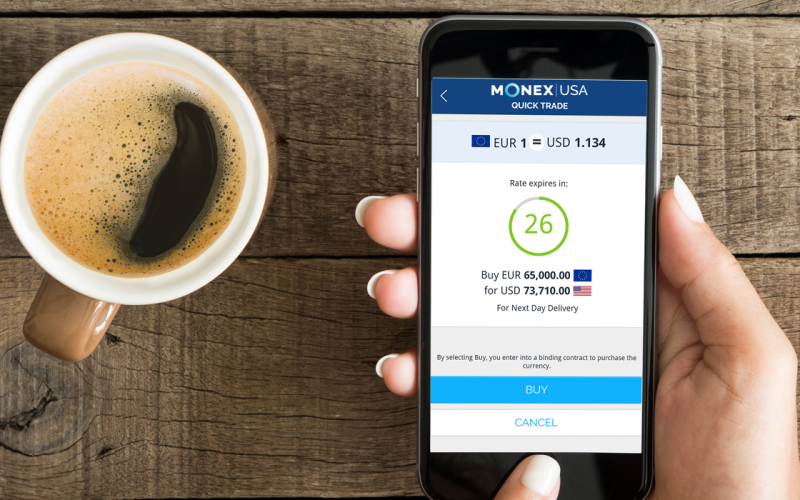In today’s global economy, small-to-medium sized companies increasingly source goods and services from international suppliers.
These suppliers offer a wide range of high-quality products that are in great demand all over the world, including French cheese, Australian wine, Italian tile, Danish furniture, German precision equipment, Japanese electronics, and Swiss watches. Without the negotiating leverage of larger companies, paying international suppliers in a timely and cost efficient manner can be challenging, especially for smaller companies. In today’s global economy, small-to-medium sized companies increasingly source goods and services from international suppliers. These suppliers offer a wide range of high-quality products that are in great demand all over the world, including French cheese, Australian wine, Italian tile, Danish furniture, German precision equipment, Japanese electronics, and Swiss watches. Without the negotiating leverage of larger companies, paying international suppliers in a timely and cost efficient manner can be challenging, especially for smaller companies.
One of the fundamental problems is that firms often make critical mistakes in managing international invoices, which create unnecessary administrative burdens and erode bottom line profits. Some of the common mistakes made by smaller businesses include:
- Using international drafts (i.e., checks). Physical payments can be lost or stolen in transit. They can also take a long time to reach their destination and, once there, often take even longer to “clear” into the recipient’s account.
- Transmitting funds incorrectly. Smaller companies frequently use incomplete or incorrect information when transmitting payments electronically. These types of errors usually result in payment delays, not to mention time-consuming investigations.
- Ignoring rates of exchange. Not understanding or ignoring exchange rates can dramatically cut into company profits. Many companies focus on transaction fees and forget that the real cost associated with international payments are noncompetitive rates of exchange.
- Using the wrong financial institution. Sending international payments through the same financial institution that processes domestic payments, regardless of its capability or cost-effectiveness.
Small businesses often process international and domestic invoices through the same financial institution, incorrectly assuming that all payment types are the same. This can be a costly and risky assumption to have, mainly because sending funds internationally requires much more information and expertise than simple domestic payments. You should realize that converting from a home currency to a foreign currency generates additional costs that do not apply to domestic payments. The fact that many small businesses are not aware of these issues or hidden costs often has them receiving poor service at higher than expected prices.
Thankfully, there are a few fundamental things smaller businesses should do to improve the processing of their international invoices. Follow these steps to expedite delivery of your company’s international payments, saving your firm money in the process:
- Education: Discuss the foreign currency markets and communicate the timing, amount, and currency of your pending payments with your foreign currency payment provider. A currency specialist will help you navigate the volatile currency markets and, optimally, time the foreign exchange conversion for your specific transaction. Your foreign exchange provider can also provide you with various international payment products, such as forward contracts or foreign currency holding accounts, which can help take advantage of favorable movements in the currency markets. Educating yourself on the foreign currency markets through periodic currency updates will help you to conduct foreign exchange and international payment transactions more efficiently and cost-effectively.
- Separation: Understand that a foreign currency conversion and international payment is entirely different from a domestic payment. The level of service, system capability, and knowledge required to efficiently and cost-effectively execute international transactions are exponentially more complicated than domestic payments. Critically review your current domestic and international payment arrangements and consider using foreign currency specialists for sensitive international payments in order to streamline payment processing and reduce costs.
- Electronic Automation: Commit to processing all international invoices through wire transfers, also known as electronic funds transfer (EFT). This method of payment will get the money to your overseas supplier in the most secure and expeditious manner possible. As part of this process, you’ll need to gather all of the international account details from your overseas supplier so that the payment can be sent without delay. Your foreign exchange provider should be able to guide you on all the specific information required to execute an international EFT, such as the International Bank Account Numbers (IBAN), needed in Europe, and bank SWIFT (Society for Worldwide Inter-bank Financial Telecommunication) address details.





